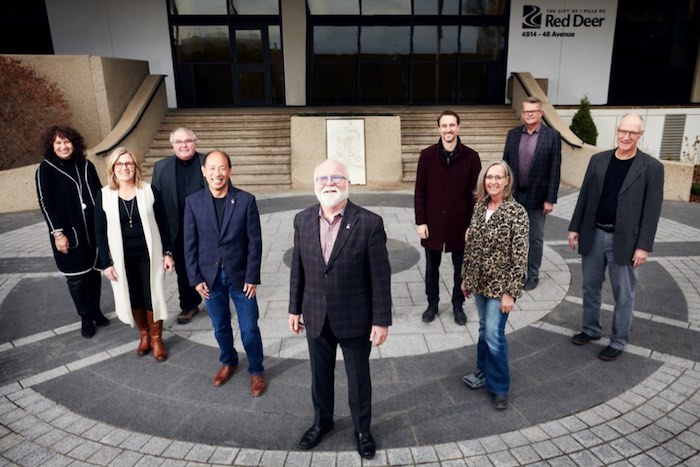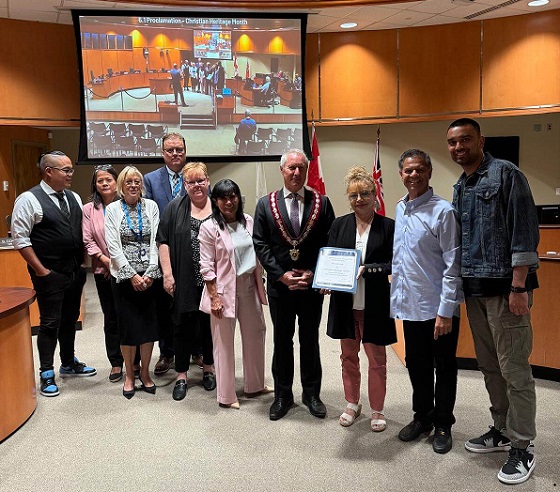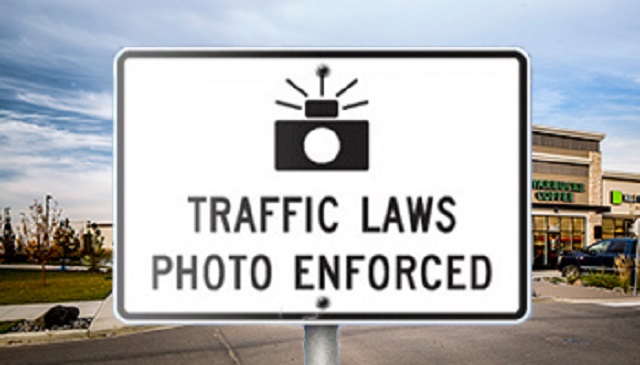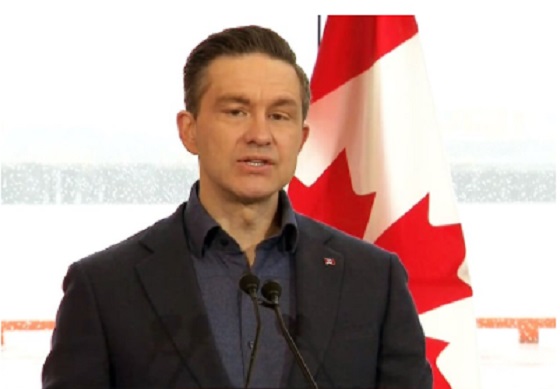City of Red Deer
City Council to develop implementation strategies for 80 recommendations from Diversity and Inclusion plan

Red Deer’s Community Informed Diversity + Inclusion Plan
The following nine priorities were developed from engagement with diverse and marginalized community members in Red Deer. They represent a beginning point for action to enhance community wellbeing through increasing equitable access and celebrating diversity. The expectation is that City staff and leaders, and community organizations and members, will collaborate together and assume joint responsibility for progressing actions which address these priorities. This will be done in an equitable way, recognizing that the City has more access to structural power and the resources needed to mobilize these actions, and that marginalized communities have more insight into which actions will provide an effective outcome. It is recommended that a Diversity and Inclusion Framework will be developed to expand on and further plan to address these priorities and recommendations.
Priority One: Address Mistreatment in Communities, Workplace and Education Systems
1. Develop a hate and discrimination response model for the city, including bystander behaviours and responses.
2. Work with school boards to track and respond to experiences of discrimination and mistreatment against marginalized people in education.
3. Create more opportunities for English language training, as well as opportunities to learn to embrace and support speakers of English with diverse accents and for whom English is not a native or first language.
4. Encourage the enforcement and enhancement of employment policies and standards that address mistreatment and inequity in the workplace.
5. Reduce barriers to gaining employment for marginalized groups by increasing knowledge and education among recruiters and employers, and encouraging the adoption of best practices to end discriminatory in hiring processes.
6. Lead with hiring diversity, valuing divergent perspectives and appropriately responding to cultural communication and work ethic differences in workplaces.
7. Provide more opportunities for business training, education and support for historically marginalized people struggling to access the labour market.
8. Review bylaws and develop and implement programs which reduce the mistreatment of people experiencing houselessness, homelessness and addictions in the community and when accessing services and healthcare.
9. Work with policing and extremist prevention groups such as the Alberta Hate Crimes Committee and the Organization for the Prevention of Violence to understand the factors causing vulnerability to recruitment into hate-based organizations and develop an action plan to prevent this.
10. Provide resources to the Welcoming and Inclusive Community Network to generate educational opportunities for programs such as Radicalization Leading to Violence.
11. Recognizing the value of addressing the unique context and needs of Indigenous people specifically, create pathways for interaction and collaboration between efforts to improve Indigenous people specifically, create pathways for interaction and collaboration between efforts to improve Indigenous Relations and Reconciliation, and broader Diversity and Inclusion.
Priority Two: Address Inequity
12. Increase and grow relationships, connections and representation from members of Indigenous communities, and members with intersecting identities from historically marginalized communities in decision-making and program development that impact their wellbeing, access and participation.
13. Encourage and incentivize marginalized communities to evaluate how they are responding to the needs of the even more marginalized people within their communities (e.g. 2LGBTQ+, disabled, women, etc.) by linking this value to funding and program development
14. Facilitate increased representation of marginalized people on council committees, community boards, service club memberships, and other similar structures
15. Challenge ‘tokenism’ by recruiting for multiple representatives from historically marginalized communities, encourage their relationship-building with each other, and plan to support their needs.
16. Include a diversity of organizations represented in engagement and partnerships, and grow this network.
17. Partner with marginalized communities and voices in the development and implementation of initiatives and programs.
18. Increase diversity in hiring, beginning with employment with the City.
19. When hiring, value Indigenous knowledge and lived experience, and lived experience of inequity, alongside or instead of educational experience; and create preferences for these experiences.
20. Explore and promote ways to recognize value in qualifications from other countries that are not currently validated by the Canadian system.
21. Address dominant culture advantage in interviews.
22. Support diverse cultural behaviours and responses, and challenge expectations for complete assimilation to the dominant culture.
23. Facilitate and incentivize employers to create organizational cultures capable of properly supporting the needs of employees with lived experience of marginalization in every level of an organization, and ensuring access to opportunities.
Priority Three: Increase Accessibility and Community Participation
24. Increase access to support for English language learning and understanding, including at shelters and drug court, and by providing translation tools for the City website and service materials.
25. Hire people with lived experience of marginalization who can provide their lens in planning and development. For example, hire people with disabilities who can provide a disability lens on planning and programming.
26. Provide clarity of the system for accessing services and create pathways to communicate this clarity to historically marginalized communities.
27. Increase resources to support accessible participation of marginalized people in all aspects of life.
28. Ensure full mobility access in the community, including sidewalks during the winter, washrooms, parking and transportation.
29. Create places for practicing faith, culture and Indigenous ceremony – in City workplaces and other community areas.
30. Ensure the City’s support for Reconciliation, Equity, Accessibility, Diversity and Inclusion is visible and celebrated, for example the subsidized bus passes for newcomers and marginalized people.
31. Create access to social agency support outside of work hours, to facilitate people who cannot call for support services during their work hours.
32. Provide resources to the City supported Red Deer Welcoming and Inclusive Community Network.
Priority Four: Increase Baseline Levels of Essential Knowledge Needed to Support Diversity and Inclusion
33. Inform the mainstream community of the value of making an effort with language for newcomers.
34. Inform Red Deer residents of inclusivity definitions and how to participate in creating inclusive environments.
35. Provide the community with humanizing stories of marginalized people. Examples could be demonstrating the impact of intergenerational trauma on experiencing addiction or how any individual is ‘a pay cheque away from being on the street’.
36. Support staff and community members to be cognizant of the power of words, use clear and inclusive language and take effective actions.
37. Support the people of Red Deer to know the true history of colonization in Canada and Red Deer, racism in Canada and Red Deer, what are Treaty 6 and 7 obligations, and what legislative and structural barriers to equity are currently affecting the lives of Indigenous people and other marginalized people.
38. Increase awareness among staff and community of systemic oppression, and the roles of systemically privileged identities and positions in both enforcing and challenging that oppression.
39. Educate City staff at all levels on issues of diversity, inclusion and equity.
40. Create opportunities to learn from community members and experts with lived experiences of marginalization, including lived experience of disabilities.
41. Support workplace learning events like ‘diversity conversations’.
42. Address the root causes of fear, ignorance and miseducation about ‘others’.
43. Increase community and staff skills in respecting and listening to diverse ideas, opinions, and cultural points of view.
44. Understand that one’s impact towards another is not limited to one’s words but is also affected by tone and one’s ability to connect with each other.
45. Uphold standards for media reporting in relation to issues of diversity and inclusion and stand against reinforcing incorrect stereotypes and discriminatory ideas.
46. Clearly understand and promote the difference between ‘equality’ and ‘equity’, favouring working towards equity.
47. Facilitate community and staff understandings of the lived experiences, needs and issues of transgender people, HIV positive people, and people living with homelessness and/or addictions, in order to effectively respond to these needs.
Priority Five: Create Opportunities to Nurture a Greater Sense of Connection
48. Take actions that increase empathy for people from diverse identities, in community and workplaces.
49. Increase coordination between service agencies.
50. Share resources, including being reciprocal about engagement and research, sharing information, and facilitating exchanges for the ‘things’ people need.
51. Create opportunities and ways for all people to come together. For example, through the downtown market place, monthly community events at performing arts centre, open hub on Ross, community marketplace, a ‘Culture fest’ centring children and food, community gardens, potlucks. *
52. Support workplace culture events. *
53. Provide grants for community events.
54. Provide a sense of belonging and connection through the lights at City Hall.
55. Support increased connection and communication between neighbours
56. Provide community dinners to all people, and including people living with homelessness.
57. Support resource allocation and access to services for mental wellbeing and healing from trauma for people from marginalized communities.
* Note: These community suggestions are multicultural solutions; intentional equity-focused and intercultural event planning is also needed.
Priority Six: Develop and Communicate a city Culture of Diversity and Inclusion
58. Consciously develop Red Deer’s culture of diversity and inclusivity, including shared values, principles, beliefs and expected behaviours.
59. Promote this inclusive culture through a communication strategy and campaigns that increase awareness, encourage examples of positive behaviours and provide opportunities for the people of Red Deer to get involved and show their alignment.
60. Encourage the buy-in of local businesses and organizations into Red Deer’s culture of inclusivity and the Diversity and Inc.
Priority Seven: Build Trust by Acting Visibly and with Accountability Community Recommendations for City of Red Deer
61. Visible participation of City Mayor, Councillors, leadership and managers in taking action for diversity and inclusion.
62. Seek facilitated diversity and inclusion education for City Mayor, Councillors, leadership and managers so they can participate as informed champions and models of inclusive work.
63. Work with communities in the development and implementation of proclamations and events.
64. Coordinate planning around honouring Black History Month, Asian and Pacific Islander Heritage Month, Pride Month, Indigenous Heritage Month, Truth and Reconciliation, Disability Employment Awareness Month, Trans Day of Remembrance, and other important events.
65. Ask applicants for their hiring and diversity policies as part of funding applications and through the procurement process.
66. Solicit buy-in for the Community Informed: Diversity and Inclusion Plan and Framework across businesses and organizations in the city.
67. Produce an internal diversity survey to be administered annually or biannually.
68. Re-enact the City of Red Deer Diversity and Inclusion Team.
69. Community Recommendations for all Red Deer Corporate Entities
70. Undertake an internal review of policies, procedures, and programs for inclusive language and lens.
71. Provide Respect, Equity, Accessibility, Diversity and Inclusion (READI) and Gender-Based Analysis Plus (GBA+) education for all internal staff to impact both internal relationships and external engagement.
72. Appoint a READI Coordinator position that works systemically or interdepartmentally, thereby reducing the silo effect.
Priority Eight: Address Inequities and Mistreatments Within and Between Marginalized Communities
73. Provide accurate education and information for newcomers on the colonial history of Canada, structural racism against Indigenous peoples, the legislations currently contributing to the oppression against Indigenous peoples, and Treaties 6 and 7 and the Metis Nation.
74. Provide information and context for Land Acknowledgements, and in language easily understood by people for whom English is not a primary language.
75. Support community-driven healing, relationship building and restorative justice practices within and between marginalized communities.
76. Addressing mistreatment within and between marginalized communities requires insight, awareness, humility and the ability to listen to and collaborate with the most marginalized and impacted in any situation. The City of Red Deer is committed to supporting healthy relationships within and between marginalized communities.
Priority Nine: Be a Powerful Advocate
77. Advocate to reduce wait times for services.
78. Advocate for the health services needs of marginalized people, especially Indigenous people, asylum seekers and refugees, transgender people, 2SLGBTQ+ people, HIV positive people, children, people with disabilities and people living with homelessness and/or addictions.
79. Advocate for an increase in resources and impactful diversity and inclusion policies and programs from the province.
80. Recommit to fulfilling the obligations of the Coalition of Inclusive Municipalities.
City of Red Deer
Over 25 Canadian cities support initiative designating December as Christian Heritage Month

From LifeSiteNews
Major cities that have signed on include Ajax, Durham, Sudbury, Mississauga, Ottawa, and Niagara Falls in Ontario, Alberta municipalities Red Deer and Okotoks, and Regina and Saskatoon in Saskatchewan. In British Columbia, Whistler and Prince George have also signed the petition.
More than 25 Canadian municipalities signed onto a proclamation declaring December as “Christian Heritage Month.”
The proclamation also asks provinces to take the initiative to declare the last month of the year in recognition of Christianity as an important part of Canadian heritage given the fact other faiths have special months of their own.
Major cities that have signed on include Ajax, Durham, Sudbury, Mississauga, Ottawa, and Niagara Falls in Ontario, Alberta municipalities Red Deer and Okotoks, and Regina and Saskatoon in Saskatchewan. In British Columbia, Whistler and Prince George have also signed the petition.
All of the cities have pledged to bring forth legislation that enshrines December as Christian Heritage Month into local law. Many have already done so.
The move by Canadian cities comes after the federal government and provincial governments have yet to proclaim December as Chrisitan Heritage Month.
According to the Christian Heritage Month Initiative, its mission is to have December “declared as Christian Heritage Month, recognizing the values of love, service, and compassion that define the Christian community.”
“The Christian Heritage Month Initiative is a dynamic, multi-denominational movement dedicated to celebrating the vibrant cultural, social, and artistic contributions of Canada’s Christian community,” the initiative says.
The initiative is under the leadership of Jay and Molly Banerjei, who are behind the Christian Music Festival. The organization says that the initiative “unites diverse voices and fosters a sense of belonging, enriching our nation’s identity and promoting inclusivity for all.”
Looking at Mississauga’s recent council motion that designates December as Christian Heritage Month, councillors have said its province under Premier Doug Ford should do the same.
Mississauga’s motion, which has been sent to Ford, was brought forth on October 30 by Councillor Brad Butt.
It reads that Christianity is among the “diverse faiths followed by Mississauga residents and one of the most followed religions in Canada and Mississauga. Christians have made valuable contributions to the cultural, social, religious, and humanitarian fabric of our city and have played an important role in shaping our diverse community.”
The Mississauga motion also makes a point that December is “marked by significant events and celebrations in the Christian calendar, commencing with the observance of Advent and culminating in the celebration of the birth of Jesus Christ, which is also known as Christmas.”
“Christian organizations and places of worship in Mississauga offer religious services, unique events, and initiatives that highlight a strong Christian heritage during the month of December,” and it’s “also widely associated with the tradition of gift giving and the gathering of family, friends, and people of all faiths, during the Christmas season,” its councillors wrote.
“Recognizing the month of December, which is a significant month in the Christian calendar, as Christian Heritage Month provides an opportunity for all residents to celebrate the history, traditions, and teachings of the Christian faith, promoting understanding and appreciation of the diverse religious and cultural heritage of our city.”
Canada is historically a nation founded on Christian ideals and principles. European settlers who came to Canada from France and then later from what is the modern-day United Kingdom were Christian and included missionaries who tried to spread the faith to the local Indigenous populations.
Canada has observed Christmas since 1641, well before its official founding, according to some historical records.
As reported by LifeSiteNews, Conservative Party of Canada (CPC) MPs have urged all Canadians to support a petition that calls on the federal government to proclaim December as “Christian Heritage Month.”
Last year, CPC MP Marilyn Gladu introduced a Private Member’s Bill C-369 that would designate December as “Christian Heritage Month,” saying this is only the “fair and right” thing to do.
The bill reads that “In the negotiations that brought about Confederation, Canada was originally named ‘Dominion of Canada,’ a name reportedly inspired by the passage in the Bible (King James Version) at Psalm 72:8, which says, ‘He shall have dominion also from sea to sea, and from the river unto the ends of the earth.’”
The bill states that December in Canada marks “significant events and celebrations in the Christian calendar, from the beginning of Advent to the celebration of the birth of Jesus Christ; And whereas, according to Statistics Canada’s 2021 Census of Population, Christianity is the largest religion in Canada, with over half of Canadians identifying as Christian.”
City of Red Deer
Photo Radar to disappear in a flash – Red Deer City Council

City Council reviews Automated Traffic Enforcement program
At Tuesday’s Council meeting, City Council received a report reviewing the current operation of The City’s Automated Traffic Enforcement (ATE) program.
Mobile photo speed enforcement, commonly known as photo radar, is one component of the ATE program that has been an important tool in capturing speed violations on city streets. On Tuesday, administration provided a report on the effectiveness of the current program, as well as identified opportunities to optimize resources and enhance public safety through conventional enforcement.
“The ATE program’s number one goal has always been to prevent accidents and increase motorist and pedestrian safety by identifying speeding violations,” said John Ferguson, Manager of Municipal Policing Services. “However, after conducting a thorough review, we have found the current photo speed enforcement program has limitations in achieving our public safety goals.”
Identified limitations of the Mobile Photo Speed Enforcement program included a range of issues, including the inability to capture all traffic and safety violations, a lack of positive change in speeding compliance over time, limited consequences to drivers, and inability to provide targeted enforcement that responds promptly to evolving community needs because of a reliance on external guidelines set by the Government of Alberta’s ATE program.
Conversely, the report found that Community Peace Officer-led enforcement could offer a number of advantages, including the ability to address a wide range of traffic and safety violations, engage directly with drivers, have the flexibility to adapt to emerging community safety needs, and have a greater impact on changing the immediate behaviour of drivers with the stopping and ticketing process.
“Most importantly, Community Peace Officers can identify and remove dangerous driving issues that go beyond speeding, such as stopping uninsured or suspended drivers, impaired or distracted driving, and seatbelt use,” said Manager Ferguson. “This report explores the value or striking a better balance between automated and conventional enforcement that fosters a stronger sense of safety, reassures residents and deters potential offenders.”
Municipal Policing will return in the fall to propose a comprehensive approach for traffic safety enforcement that replaces the use of mobile photo speed enforcement with Community Peace Officers.
For more information about the current ATE program, visit www.reddeer.ca/ATE.
-

 conflict1 day ago
conflict1 day agoZelensky Alleges Chinese Nationals Fighting for Russia, Calls for Global Response
-

 2025 Federal Election1 day ago
2025 Federal Election1 day agoHarper Endorses Poilievre at Historic Edmonton Rally: “This Crisis Was Made in Canada”
-

 Business2 days ago
Business2 days agoTrump eyes end of capital gains tax in 2025
-

 Bruce Dowbiggin2 days ago
Bruce Dowbiggin2 days agoBettman Gives Rogers Keys To The Empire. Nothing Will Change
-

 2025 Federal Election2 days ago
2025 Federal Election2 days agoPoilievre Will Bring in ‘One and Done’ Resource Approvals, and Ten Specific Projects Including LNG Canada Phase II
-

 2025 Federal Election2 days ago
2025 Federal Election2 days agoElection Security Briefing Confirms CCP-Linked Operation Boosted Carney
-

 2025 Federal Election1 day ago
2025 Federal Election1 day agoAn In-Depth Campaign Trail “Interview” With Pierre Poilievre
-

 Alberta16 hours ago
Alberta16 hours agoAlberta’s embrace of activity-based funding is great news for patients









